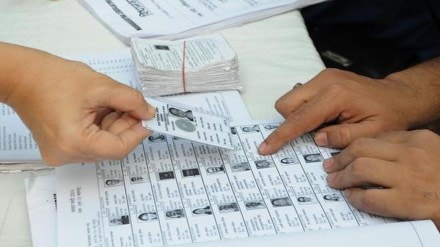INDIA bloc leaders met with the Election Commission on Tuesday to talk about the Special Intensive Revision (SIR) of voter lists in Bihar. They said the timing of this process is a problem because it’s happening just before the state assembly elections. They warned that this could lead to over two crore people in Bihar getting disenfranchised, meaning, losing their right to vote.
Concerns over Special Intensive Revision (SIR) of electoral roll in Bihar
The leaders raised their concerns before Chief Election Commissioner Gyanesh Kumar. The INDIA bloc has strongly opposed the Special Intensive Revision (SIR) of the electoral roll, which has already begun in Bihar and will also take place in Assam, Kerala, Puducherry, Tamil Nadu, and West Bengal. Except for Bihar, all other states are going to elections next year.
After meeting with the Election Commission, Congress leader Abhishek Singhvi told the media that around two crore people in Bihar could lose their right to vote. He said many voters, especially those from Scheduled Castes (SCs), Scheduled Tribes (STs), migrant workers, and poor families, may not be able to provide their own or their parents’ birth certificates in the short time given.
He also said that if their names are removed from the voter list, they won’t be able to challenge it in court, as elections would already be underway, and courts usually do not take up such cases during the election period.
‘Vote-bandi in Bihar will destroy democracy’: Congress
Congress general secretary Jairam Ramesh took to X and shared, “After the PM’s ‘notebandi’ of November 2016 destroyed our economy, ECI’s ‘VOTE-Bandi’ in Bihar and other states, as reflected in the SIR, will destroy our democracy.”
On the other hand, Congress leader Abhishek Singhvi said revising the list now is unnecessary, as elections have taken place over the past 20 years using the existing rolls. He warned that the sudden change is unfair and may damage India’s democratic foundation.
The Congress and other parties also protested new restrictions by the Election Commission (EC), such as only allowing party presidents or two representatives to meet officials. They accused the EC of acting in a biased manner and ignoring their concerns during the meeting.
